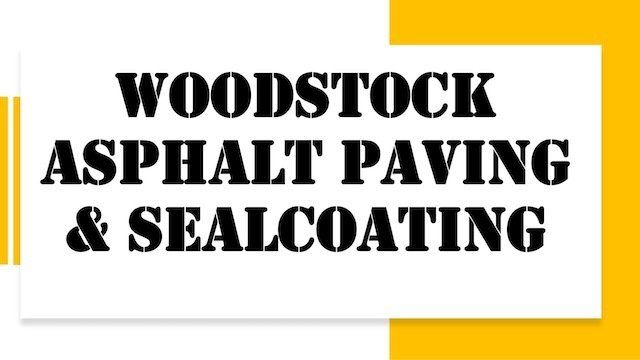Best Driveway Materials for Harsh Weather Conditions
When it comes to building a driveway, not all materials are created equal. If you live in an area with harsh weather conditions, such as extreme cold, intense heat, heavy rain, or snow, your choice of materials will make a significant difference in durability and performance. A poor choice can lead to cracking, erosion, and expensive repairs, while the right materials can save you time, money, and frustration.
This guide will walk you through the best driveway materials suited to endure the harshest climates. Whether you’re dealing with frost heaves in icy regions or heat cracks in sunny locales, you’ll find solutions to keep your driveway in top condition for years to come.
Why Your Driveway Material Choice Matters
The driveway isn’t just a functional pathway—it’s an investment. It needs to withstand the daily wear and tear of vehicles and remain intact against seasonal weather. Poor-quality materials may crack, discolor, or degrade when exposed to extreme temperatures, rain, or snow. These issues can lead to expensive maintenance costs and reduced curb appeal over time.
By selecting the right material, you can avoid these headaches and enjoy a driveway that’s both durable and visually appealing, no matter where you live.
Factors to Consider for Harsh Weather
Before we discuss specific materials, here are key factors to consider when choosing a driveway for tough climates:
- Temperature Extremes: Can the material expand and contract without cracking?
- Drainage: Does your material allow heavy rain or melting snow to drain effectively?
- Traction: Is the surface slip-resistant, especially during wet or icy conditions?
- Maintenance: How easy is it to repair and maintain the material?
Now that we have the basics covered, here are the best driveway materials based on their performance in different weather conditions.
Top Driveway Materials for Harsh Weather
1. Concrete Driveways
Best For: Moderate climates with light snow
Concrete is one of the most popular driveway materials—and for good reason. It offers durability, low maintenance, and a clean aesthetic. However, if you live in areas with extreme freeze-thaw cycles, concrete may not always be the best choice. Without proper installation and sealing, it can develop cracks and spalling due to repeated expansion and contraction.
Pros:
- Long lifespan (30+ years with good maintenance)
- Low maintenance with occasional sealing
- Aesthetically versatile—can be stamped, stained, and designed to suit your style
Cons:
- Susceptible to cracking in freezing weather
- Requires good drainage design to avoid water pooling
Pro Tip: To protect a concrete driveway in snowy areas, invest in high-quality sealers that block moisture from penetrating the surface.
2. Asphalt Driveways
Best For: Cold climates with snow and frost
If your driveway needs to withstand freezing winters and snow plows, asphalt is a reliable choice. Thanks to its flexibility, it performs better than concrete in areas with freeze-thaw cycles. It’s also easier to repair, as small cracks can be patched without having to redo the entire surface.
Pros:
- Flexible and less likely to crack in frost-heavy areas
- Dark color absorbs heat, helping snow to melt faster
- Affordable and easy to repair
Cons:
- Requires periodic sealing (approximately every 3–5 years)
- Can soften and deform in extreme heat
Pro Tip: Use a quality sealcoat to extend the life of an asphalt driveway and improve its resistance to water and UV damage.
3. Gravel Driveways
Best For: Areas with heavy rain or wet climates
Gravel driveways are excellent for regions prone to heavy rainfall, as they allow water to drain through the stones, preventing puddles and erosion. This makes them particularly useful in areas with poor drainage systems. However, they require regular maintenance to keep the gravel level and free of debris.
Pros:
- Excellent drainage prevents water pooling
- Affordable initial cost
- Easy to repair by simply adding more gravel
Cons:
- Requires regular maintenance to fill in ruts and compact loose gravel
- Can be messy with stones spreading into surrounding areas
Pro Tip: Choose angular gravel to help the stones lock together, creating a more stable surface.
4. Paver Driveways
Best For: Moderate climates with aesthetic appeal
Pavers—made from materials like concrete, brick, or natural stone—provide both durability and visual appeal. They’re especially well-suited to moderate climates, as they are resistant to shrinking or expanding. And if a section becomes damaged, individual pavers can be replaced without disrupting the whole driveway.
Pros:
- Highly attractive with customizable designs
- Easy to replace individual pavers
- Slip-resistant options available
Cons:
- Can be expensive to install
- Requires proper maintenance to prevent weeds and settling
Pro Tip: Go for interlocking pavers for a stronger and more stable surface, especially in areas with shifting soil.
5. Permeable Pavers
Best For: Eco-conscious homeowners in wet climates
Permeable pavers are an environmentally friendly alternative to traditional pavers or concrete. They allow rainwater to drain through the gaps between the stones, helping to prevent water runoff and erosion. These pavers are particularly beneficial in areas with stricter environmental regulations.
Pros:
- Eco-friendly and excellent for drainage
- Reduces water pooling and runoff
- Durable with proper installation
Cons:
- Smaller gaps may require cleaning to remove debris
- Higher initial cost compared to standard pavers
Pro Tip: Use permeable pavers in combination with gravel or sand for even better drainage performance.
6. Cobblestone Driveways
Best For: Durability in all climates
Cobblestone driveways are one of the longest-lasting materials you can find. They’re tough enough to withstand harsh winters, heavy rain, and heat alike. Plus, their antique, rustic look adds charm to any home. The only drawback? The higher cost and more intensive installation process.
Pros:
- Extremely durable—can last over a century
- Resistant to cracking or heat deformation
- Aesthetic appeal for traditional or rustic designs
Cons:
- Expensive to install
- May require occasional refilling of joints with sand
Pro Tip: Choose cobblestones with rounded edges for a smoother surface that’s easier to drive on.
Expert Tips for Maintaining Your Driveway
No matter which material you choose, proper maintenance is essential for withstanding harsh weather conditions. Here are a few universal tips for keeping your driveway in top shape year-round:
- Seal as Needed: Concrete, asphalt, and some paver driveways benefit greatly from regular sealants.
- Clear Snow Carefully: Use plastic shovels or snow blowers to avoid scratching the surface.
- Address Cracks Early: Small cracks can grow quickly, so repair them as soon as they appear.
- Clean Regularly: Prevent debris and dirt from accumulating, especially in paver and gravel driveways.
Upgrade Your Driveway with the Right Materials
Choosing the best driveway material for harsh weather conditions doesn’t have to be overwhelming. By understanding your local climate and considering your unique needs, you can invest in a driveway that lasts for decades to come.
Whether you're prioritizing drainage, durability, or curb appeal, there's a material out there that fits your requirements perfectly. Take the time to evaluate your options and maintain your driveway regularly to enjoy a long-lasting, hassle-free surface.
Looking for more home improvement tips? Keep exploring our blog for expert insights on how to make your home resilient and beautiful.
We proudly serve the following cities: Acworth, Alpharetta, Atlanta, Austell, Brookhaven, Canton, Cartersville, Dallas, Decatur, Doraville, Douglasville, Duluth, Dunwoody, East Cobb, Hiram, Johns Creek, Kennesaw, Lilburn, Mableton, Marietta, Milton, Powder Springs, Roswell, Sandy Springs, Stone Mountain, Suwanee, Tucker, Villa Rica, and Woodstock Ga.
Woodstock Asphalt Paving & Sealcoating
Woodstock Ga 30188
404-724-8034


